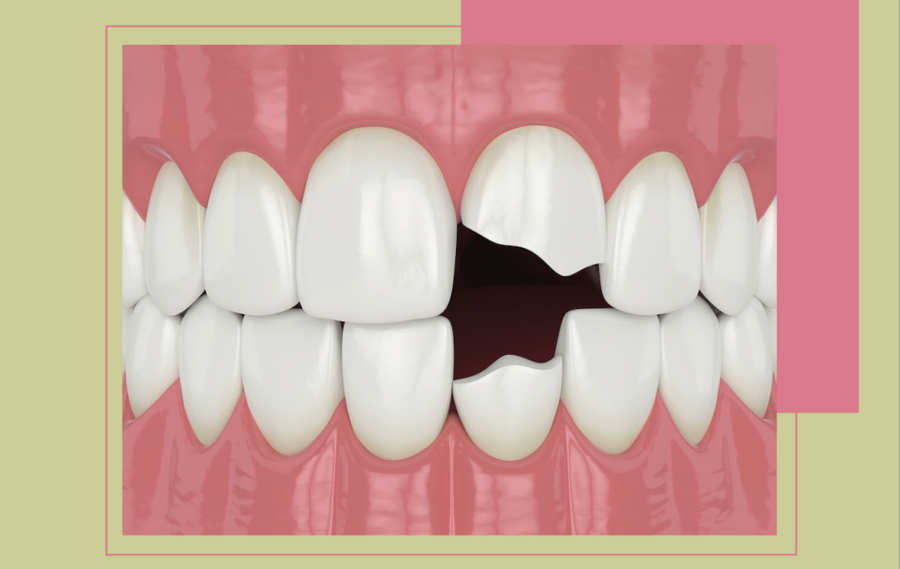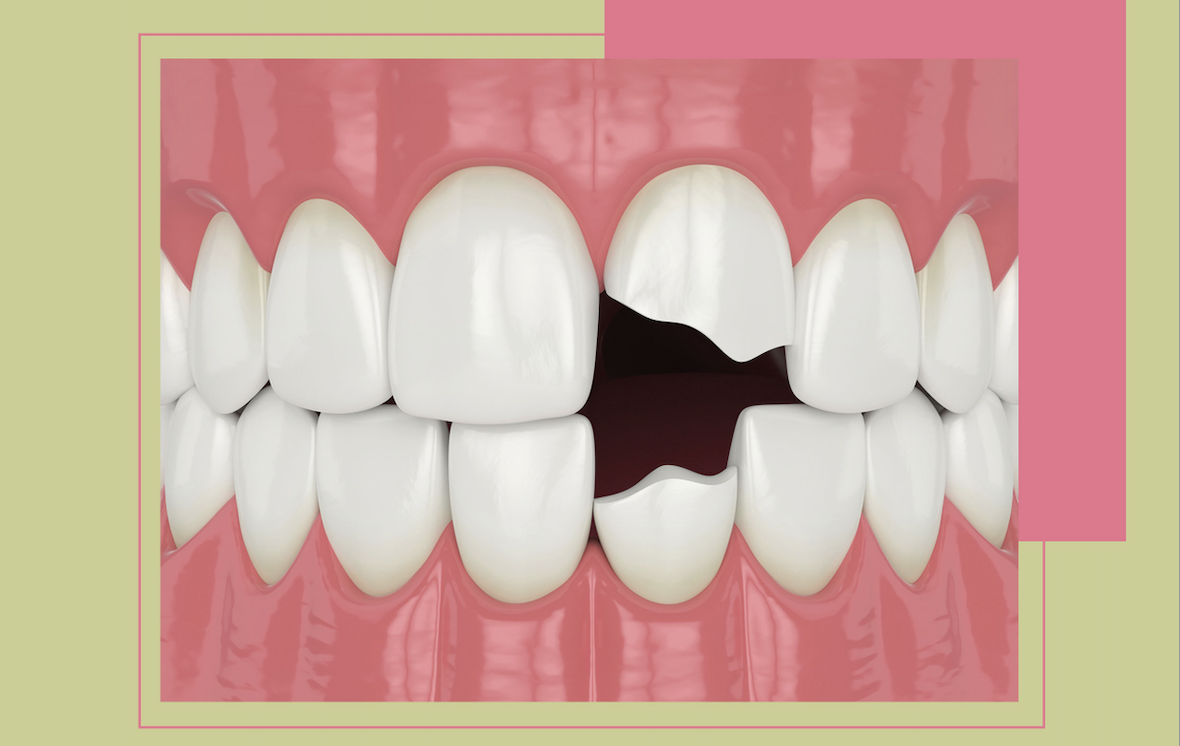Dental hypoplasia, often known as soft teeth, can strike anyone at any time and, if ignored, can lead to a variety of issues. We’ll go into detail about what soft teeth actually imply, why they occur, and warning signals to look out for in this blog. The signs and symptoms of soft teeth might range from increased sensitivity to sudden cavities. Early detection of these symptoms will allow you to take preventative measures to protect your oral health. Thus, you’ve come to the correct place if you’ve been wondering why some of your teeth seem to be more problematic than others or if you’re exhibiting any of the symptoms associated with soft teeth. Together, let’s negotiate this dental terrain.
What are Soft Teeth?
Dental enamel hypoplasia, a clinical term for soft teeth, is a disorder in which the enamel, or the hard outer coating of the teeth, is thinner and weaker than normal. Teeth with enamel hypoplasia are more vulnerable to injury and decay because of insufficient or incorrect enamel production during tooth development. Both primary (baby) and permanent (adult) teeth may be affected by this disorder, jeopardizing their general health and structural integrity.

Impact on Oral Health
Because soft teeth are more vulnerable to breakage and decay than normal teeth, they provide serious problems to oral health. Because enamel hypoplasia weakens the teeth’s structural integrity, it leaves them open to damage from outside sources including acids, bacteria, and mechanical wear. Soft teeth can therefore lead to frequent cavities, enamel erosion, and dental sensitivity, all of which can negatively affect a person’s quality of life and general health.
Prevalence and Common Misconceptions
Soft teeth are a somewhat common dental disease, affecting persons of all ages and demographics. Enamel hypoplasia is largely hereditary, although environmental factors like malnutrition, exposure to chemicals during pregnancy, and childhood illnesses can also contribute to the development of the condition. Soft teeth are common, yet they’re frequently misinterpreted and misdiagnosed, which results in false beliefs and insufficient care.
A prevalent misperception is that dental hygiene issues are the only cause of soft teeth. Although they can make enamel erosion and decay worse, dental hygiene procedures are not the only thing that cause these issues. An individual’s susceptibility to enamel hypoplasia is influenced by a combination of genetics, medical problems, and environmental factors.
Dr. Chirag Chamria’s Perspective
In his practice, Dr. Chirag Chamria has seen many cases of soft teeth as a seasoned dentist with years of experience. With his professional knowledge and kind treatment, Dr. Chirag has acquired important insights into the difficulties and complications related to this prevalent yet frequently disregarded dental ailment. He is committed to creating individualized treatment strategies that specifically address the needs of patients with soft teeth.

Dr. Chirag has personally seen the effects that patients’ general health and oral hygiene can have from having soft teeth. From young infants feeling discomfort and sensitivity to adults battling with recurring cavities and enamel erosion, he has seen the many symptoms of enamel hypoplasia and its consequences for dental treatment. Dr. Chirag wants to enable people with soft teeth to take charge of their dental health and make long-lasting changes through patient education and proactive intervention.
Dental Professional’s Approach
Dr. Chirag handles soft teeth in a thorough and patient-centered manner, with a strong emphasis on early intervention, preventive care, and individualized treatment plans. To gauge the severity of enamel hypoplasia and find any related risk factors or consequences, he starts by doing a comprehensive dental examination and assessment. A thorough talk to ascertain the patient’s aims and concerns should be had in addition to analysing the patient’s medical history and doing diagnostic testing.
Dr. Chirag creates individualised treatment plans based on his findings, taking into account the particular requirements and preferences of each patient. In order to improve enamel and reduce the incidence of cavities, preventive treatments like fluoride therapy, dental sealants, and dietary counselling may be necessary. In order to repair damaged teeth and restore ideal function and aesthetics, Dr. Chirag may suggest restorative operations like veneers, crowns, or fillings for people who already have dental problems.
Causes of Soft Teeth
Genetic Factors
Individuals with a family history of dental issues, including soft teeth, are more likely to inherit genetic traits that contribute to weaker enamel. Genetics play a significant role in determining the strength and quality of dental enamel. Certain gene variations can make individuals more susceptible to enamel defects.
Poor Oral Hygiene Habits
Irregular or improper oral hygiene practices can lead to plaque buildup, bacterial growth, and ultimately, enamel erosion. Brushing and flossing techniques are vital for maintaining healthy teeth and preventing softening of enamel. Skipping routine dental visits can result in undetected dental issues, such as cavities or enamel erosion. Regular check-ups allow dentists to identify early signs of soft teeth and provide timely interventions.
Nutritional Deficiencies
A diet lacking essential nutrients, particularly calcium, phosphorus, and vitamins like A, D, and K, can weaken tooth enamel over time. Nutritional deficiencies hinder the remineralisation process, making teeth more vulnerable to decay and softening. Consuming foods rich in calcium, phosphorus, and vitamins crucial for dental health can fortify enamel and promote overall oral health. Incorporating dairy products, leafy greens, nuts, and lean proteins can support enamel strength and integrity.
Symptoms and Indicators | Dental hypoplasia
Tooth Sensitivity
Soft teeth are more susceptible to temperature changes and acidic foods, leading to heightened sensitivity. Patients may experience discomfort or pain when consuming hot, cold, sweet, or sour substances.
Dr. Chirag Chamria recommends using desensitizing toothpaste, avoiding acidic foods and beverages, and adopting gentle brushing techniques to alleviate tooth sensitivity associated with soft teeth.
Increased Cavities
Soft enamel provides less protection against bacterial attacks, increasing the risk of cavities. Individuals with soft teeth are prone to developing cavities at a faster rate compared to those with healthy enamel. Maintaining good oral hygiene practices, including regular brushing, flossing, and fluoride use, is crucial for preventing cavities. Dr. Chirag emphasises the importance of scheduling routine dental check-ups for early cavity detection and treatment.
Enamel Erosion
Enamel erosion manifests as thinning, pitting, or transparency of tooth surfaces. Patients may notice changes in tooth appearance, increased tooth sensitivity, or roughness along the edges. Dr. Chirag counsels patients to restrict sugary snacks, stay away from acidic foods and beverages, and gargle with water. Additionally, using fluoride toothpaste and undergoing professional fluoride treatments can help strengthen weakened enamel.
Soft Teeth in Children: A Special Focus
Children’s soft teeth bring special difficulties and factors to paediatric dentistry. In order to maintain the best possible oral health, paediatric dentists emphasise early intervention and preventive therapy. They provide invaluable insights into managing this problem in young children.
Paediatric dentists are experts in treating oral diseases in kids, including issues like Dental hypoplasia. They are skilled in identifying and treating juvenile patients’ enamel hypoplasia, customising treatment regimens to meet each patient’s specific requirements and developmental stage. Paediatric dentists play a critical role in establishing good oral hygiene habits and supporting lifelong dental health by offering gentle, kid-friendly care and creating positive dental experiences.
Dr. Chirag’s Tips for Parents
In his helpful guidance, Dr. Chirag highlights the value of proactive dental care and preventive measures for parents of kids with soft teeth. He advises parents to help their kids develop a healthy dental practice that includes frequent dental check-ups, daily flossing, and brushing with fluoride toothpaste. Furthermore, as acidic and sugary foods and drinks can erode tooth enamel and cause cavities, Dr. Chirag counsels parents to restrict their child’s intake of these items. In order to protect their child’s teeth and lower the likelihood of dental issues, parents can help. By putting a strong emphasis on maintaining dental hygiene and adopting a tooth-friendly diet.
Treatment Options
Restorative Dentistry
Restorative procedures like dental crowns and fillings are frequently advised for teeth that have cavities or enamel degradation. While dental crowns give weak teeth more strength and protection, dental fillings repair decayed tooth material and restore the tooth’s structure.
Restorative dentistry techniques benefit from Dr. Chirag Chamria’s vast knowledge and skill. To attain the best outcomes, he uses cutting-edge methods and supplies with an emphasis on accuracy and patient comfort. When treating dental issues such as cavities, cracks, or other issues, Dr. Chirag guarantees his patients individualised treatment and long-lasting results.
Preventive Measures
Maintaining dental health requires prevention, particularly for those with brittle teeth. Working together with patients, Dr. Chirag creates dental care programs that are specific to each person’s requirements and worries. These programs might suggest routine dental checkups in addition to providing detailed instructions for flossing, brushing, and utilizing fluoride products.
Aside from maintaining good oral cleanliness, lifestyle changes can be very helpful in fortifying teeth and halting more enamel deterioration. Dr. Chirag informs his patients on the significance of making healthy eating choices, such cutting back on sugar and including foods that are good for your teeth and high in calcium and other important elements. Stronger teeth and better oral health can also result from forming positive habits and abstaining from bad ones like smoking and crushing your teeth.
Conclusion
We have investigated nutritional impacts, poor oral hygiene, and hereditary variables in our quest to understand the complexities of Dental hypoplasia. The insights provided by Dr. Chirag Chamria highlight the critical significance of preventative care and provide insight into early detection and customized therapies. As we go over the essentials, let’s arm ourselves with knowledge so that we can put dental health first. Equipped with Dr. Chirag’s knowledge, let us adopt preventive practices, such as careful dental hygiene and conscientious eating decisions. Armed with knowledge, comprehension, and a dedication to promoting long-term dental well-being, we set out on a journey together towards robust smiles. The path to perfect dental health begins right now.






